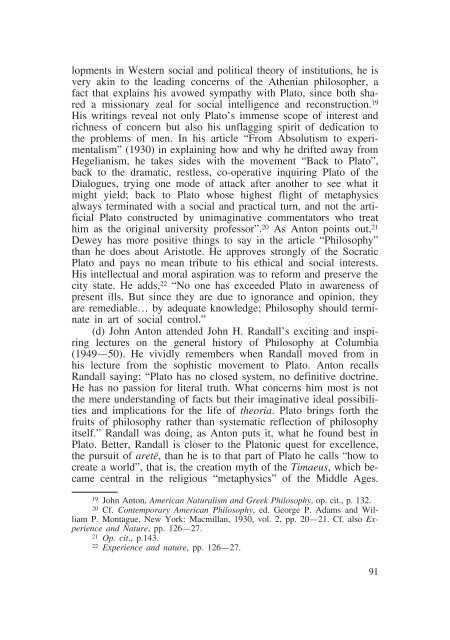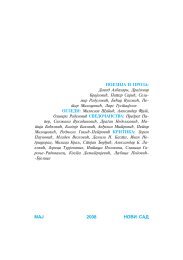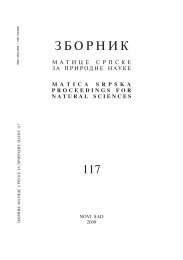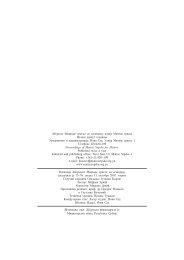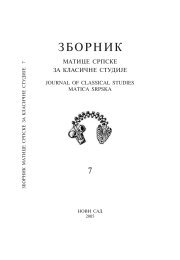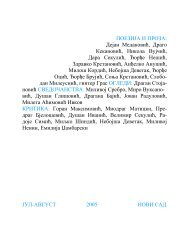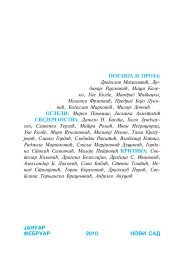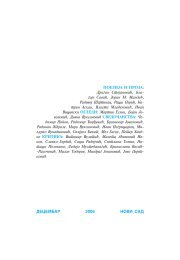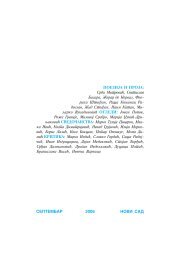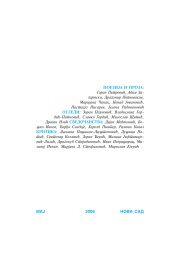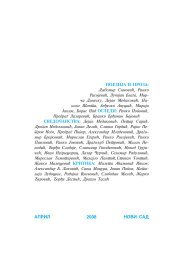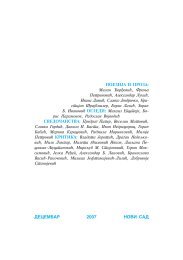Create successful ePaper yourself
Turn your PDF publications into a flip-book with our unique Google optimized e-Paper software.
lopments in Western social and political theory of institutions, he is<br />
very akin to the leading concerns of the Athenian philosopher, a<br />
fact that explains his avowed sympathy with Plato, since both shared<br />
a missionary zeal for social intelligence and reconstruction. 19<br />
His writings reveal not only Plato's immense scope of interest and<br />
richness of concern but also his unflagging spirit of dedication to<br />
the problems of men. In his article “From Absolutism to experimentalism"<br />
(1930) in explaining how and why he drifted away from<br />
Hegelianism, he takes sides with the movement “Back to Plato",<br />
back to the dramatic, restless, co-operative inquiring Plato of the<br />
Dialogues, trying one mode of attack after another to see what it<br />
might yield; back to Plato whose highest flight of metaphysics<br />
always terminated with a social and practical turn, and not the artificial<br />
Plato constructed by unimaginative commentators who treat<br />
him as the original university professor". 20 As Anton points out, 21<br />
Dewey has more positive things to say in the article “Philosophy"<br />
than he does about Aristotle. He approves strongly of the Socratic<br />
Plato and pays no mean tribute to his ethical and social interests.<br />
His intellectual and moral aspiration was to reform and preserve the<br />
city state. He adds, 22 “No one has exceeded Plato in awareness of<br />
present ills. But since they are due to ignorance and opinion, they<br />
are remediable… by adequate knowledge; Philosophy should terminate<br />
in art of social control."<br />
(d) John Anton attended John H. Randall's exciting and inspiring<br />
lectures on the general history of Philosophy at Columbia<br />
(1949—50). He vividly remembers when Randall moved from in<br />
his lecture from the sophistic movement to Plato. Anton recalls<br />
Randall saying: “Plato has no closed system, no definitive doctrine.<br />
He has no passion for literal truth. What concerns him most is not<br />
the mere understanding of facts but their imaginative ideal possibilities<br />
and implications for the life of theoria. Plato brings forth the<br />
fruits of philosophy rather than systematic reflection of philosophy<br />
itself." Randall was doing, as Anton puts it, what he found best in<br />
Plato. Better, Randall is closer to the Platonic quest for excellence,<br />
the pursuit of aretÊ, than he is to that part of Plato he calls “how to<br />
create a world", that is, the creation myth of the Timaeus, which became<br />
central in the religious “metaphysics" of the Middle Ages.<br />
19 John Anton, American Naturalism and Greek Philosophy, op. cit., p. 132.<br />
20 Cf. Contemporary American Philosophy, ed. George P. Adams and William<br />
P. Montague, New York: Macmillan, 1930, vol. 2, pp. 20—21. Cf. also Experience<br />
and Nature, pp. 126—27.<br />
21 Op. cit., p.143.<br />
22 Experience and nature, pp. 126—27.<br />
91


